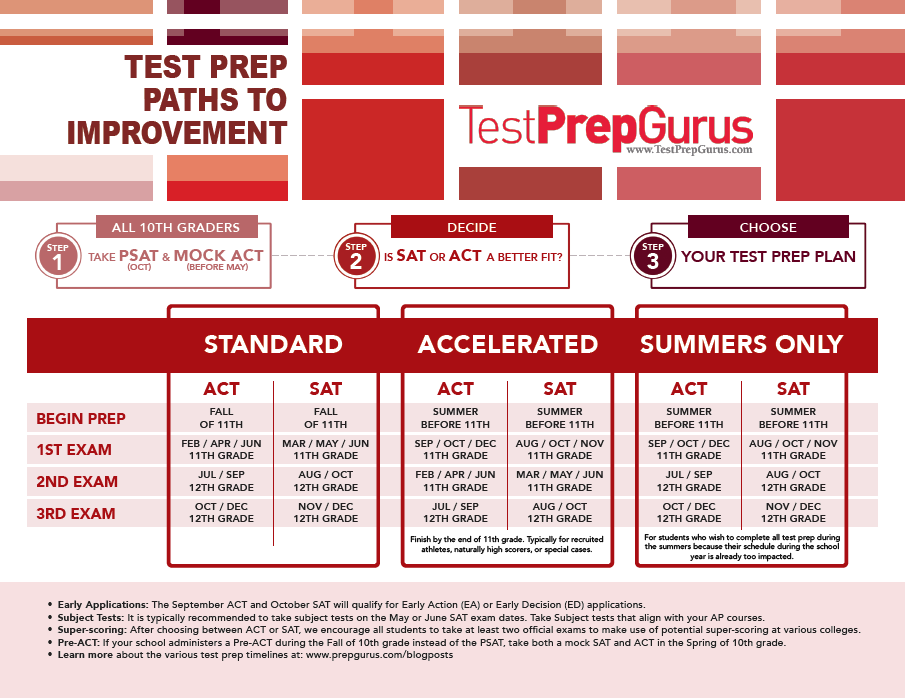The question we keep receiving from parents and students is —
Will the SAT and ACT be relevant for current 10th and 11th Graders?
The short answer is yes.
See our analysis below…
New Trends—
In 2021, we expect to see the following trends emerge:
More selective colleges will be test-optional, but the SAT and ACT will still matter a great deal.
As we've previously expressed, the new test-optional policies at many universities will encourage more applications. Many students will apply without standardized test scores because that will be easier. However…
Students who submit a strong ACT or SAT score will likely see an outsized advantage when college admissions officers decide who gets in and who does not.
Conclusion: Current 10th and 11th graders should prepare for the ACT and SAT as they have in years past.
AP Exams will take on greater importance in the admissions process at colleges that de-emphasize the ACT and SAT or stop using it.
This point is primarily focused on the UC System. They are leading the charge to de-emphasize, and possibly remove altogether, the use of the ACT and SAT in their admissions decisions. However…
GPA is not a reliable metric when it is used as the sole quantitative metric for admissions due to grade inflation. (This isn’t our opinion, it’s based on rock-solid science produced by the research committee that the UC formed to study their own admissions process.)
Therefore, if the UCs are test-blind in 2021 and beyond (this means that they cannot even look at SAT and ACT scores), they will use AP scores in conjunction with GPAs to bolster their quantitative metrics.
Conclusion: Current 10th and 11th graders should prepare for their AP exams and take them very seriously, especially if they plan to apply to UC schools.
Current 11th graders—
We get it. You’re anxious that you’re falling behind and that you’ll be in a poor position next Fall when you submit your applications to colleges. We would urge you to be patient. Your window for testing will come in the Spring and Summer as Covid-19 is brought under control. What you can do right now to assuage that anxiety is prepare for the ACT or SAT so that when your opportunity comes to test, you’ll be ready to take full advantage of it.
““…the most effective way to deal with anxiety, I’ve discovered is to make sure you’re as prepared as possible for whatever is coming your way.” ”
Current 10th graders—
You have plenty of time, so there is no need to rush. What you can do right now is to decide whether ACT or SAT is a better fit. Remember, no college needs both an ACT and SAT, and no college prefers one test over the other. They just want the best score you can produce on either the ACT or SAT. So it is to your advantage to pick one test and stick with it.
How do you do that?
Take a Pre-ACT at your school or a full-length mock ACT with Test Prep Gurus
Take a PSAT at your school or a full-length mock SAT with Test Prep Gurus
Contact one of our Directors to analyze your results and determine which exam plays to your natural academic strengths.
New Test Dates:
Many high schools this Spring will take advantage of their new ability to hold an ACT or SAT exclusively for their students. In the past, every school that hosted an exam was a national testing site, open to anyone who registered for it. However, beginning this Spring, high schools will now have the option to host an exam on their campus that will be only for their students. This will allow high schools to host exams safely, without breaking their Covid-19 distance protocols.
Upcoming dates for the ACT and SAT—
ACT:
February 6, 2021 (national test date, register directly with ACT)
March 2, 2021 (district testing, ask your high school if they are participating)
March 16, 2021 (district testing, ask your high school if they are participating)
March 30, 2021 (district testing, ask your high school if they are participating)
April 13 2021 (district testing, ask your high school if they are participating)
April 17, 2021 (national test date, register directly with ACT)
June 12, 2021 (national test date, register directly with ACT)
July 17th, 2021 (national test date, register directly with ACT)
SAT:
March 3, 2021 (district testing, ask your high school if they are participating)
March 13, 2021 (national test date, register directly with College Board)
March 24, 2021 (district testing, ask your high school if they are participating)
April 13, 2021 (district testing, ask your high school if they are participating)
April 27, 2021 (district testing, ask your high school if they are participating)
May 8, 2021 (national test date, register directly with College Board)
June 5, 2021 (national test date, register directly with College Board)











